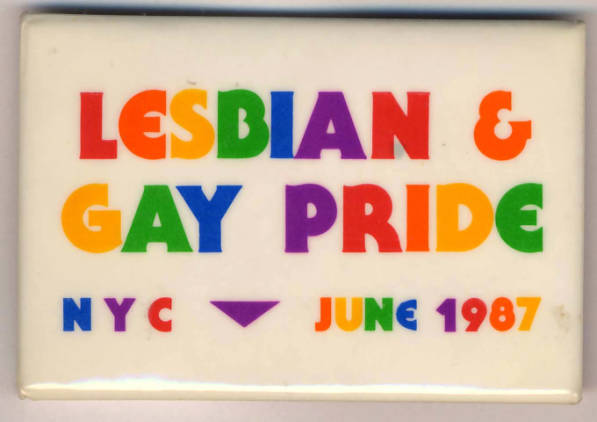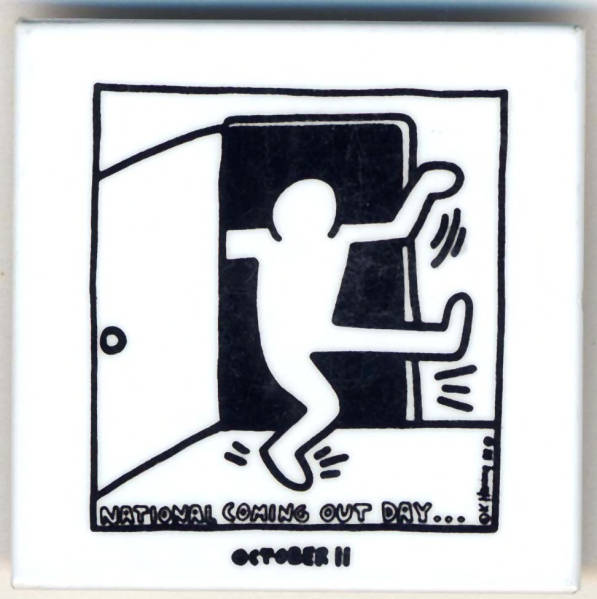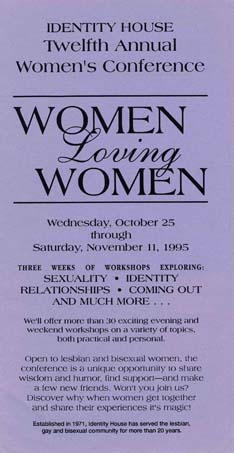Lesbian
& Gay Activism
(Photos below)
Marder’s photographic career documents the fluid progression of
her activist interests: from Vietnam War protest to anti-nuclear and
women’s liberation to lesbian and gay rights. Marder’s own activism aand photography consistently aimed for portraying human rights and a
concern for other activists. The photography of Gay
Pride Parades, Dyke Marches, and Lesbian Feminist events, showed
her artistic eye, high quality shots, and psychological involvement seen
from the beginning of Marder's career. By the late 1980s, the women
in front of her camera were no longer the strong WSP members protesting the war, but included proud lesbians marching for gay
rights.
Coming out as a lesbian herself
was a liberating experience for Marder, as well as a vehicle for
self-exploration and political activism. Membership in the
gay and lesbian community and a desire for
visibility is evident in her photography. Marder documented the people, activism, and events of New York
City Gay Pride Movement during its early years.
Many have
identified the June 1969 Stonewall Riots in New York City as the start
of the Gay Rights or Gay Pride Movement. The AIDs tragedy of the
1980s and beyond fostered and renewed unity between gay men and lesbians
in the movement (Stein). However, other historical events also
informed the political stance of many gay and lesbian activists of the
1970s and 1980s. During the sexual revolution of the 1960s and 1970s,
gay and lesbian activists “believed they were waging a revolutionary
struggle to free the homosexual in everyone” (Stein, 32) But the
sexual revolution and feminism of the 1960s were rarely inclusive of
homosexuality (Stein). In the 1970s, many lesbians identified with
the changing women’s movement instead of the gay liberation
movement. Radical feminists in the 1970s frequently
identified themselves as lesbians, or rather lesbian feminists – women
who reject the values and culture of men and traditional masculinity,
choosing women and egalitarian values instead (Stein, 43). Some lesbians
believed that women had to separate from men, including gay men, in
politics and in every day life. Bringing the issues of race and class into the
conversation of lesbianism shifted focus onto multiple facets of
oppression and broadened lesbian identity (Stein 125).
Dorothy Marder was
always active on a variety of issues, and in her personal
life and photography she often bridged several lesbian and gay
identities. Her work as a peer counselor for Identity
House gave Marder insight and compassion for the whole spectrum of the New
York City's lesbian and gay community. Although not they were not specifically
lesbian events, Marder’s images of the Women’s Pentagon Action and
the Women's Encampment for a Future of Peace and Justice made visual statements on separatist feminism. While, her documenting
of Gay Pride Marches was inclusive of both men and women.
Literature Cited:
Stein, Arlene. Sex and Sensibility: Stories of Lesbian
Generation. 1997. University of California Press, Berkley.
Jeffreys, Sheila. Not a Passsing Phase: Reclaiming Lesbians in
History 1840-1985. 1989. The Women’s Press Ltd, London.
____________________________________________________________

Event: Gay Pride Parade
New York, New York
1987
Contact Sheet Close-up, D 1327 - D 1332

Event: Gay Pride Parade
New York, New York
1987
Contact Sheet Close-up, D 1327 - D 1332

Event:
5th Annual Dyke March
New York, New York
March 1997
Contact Sheet Close-up D 4025 - D 4026
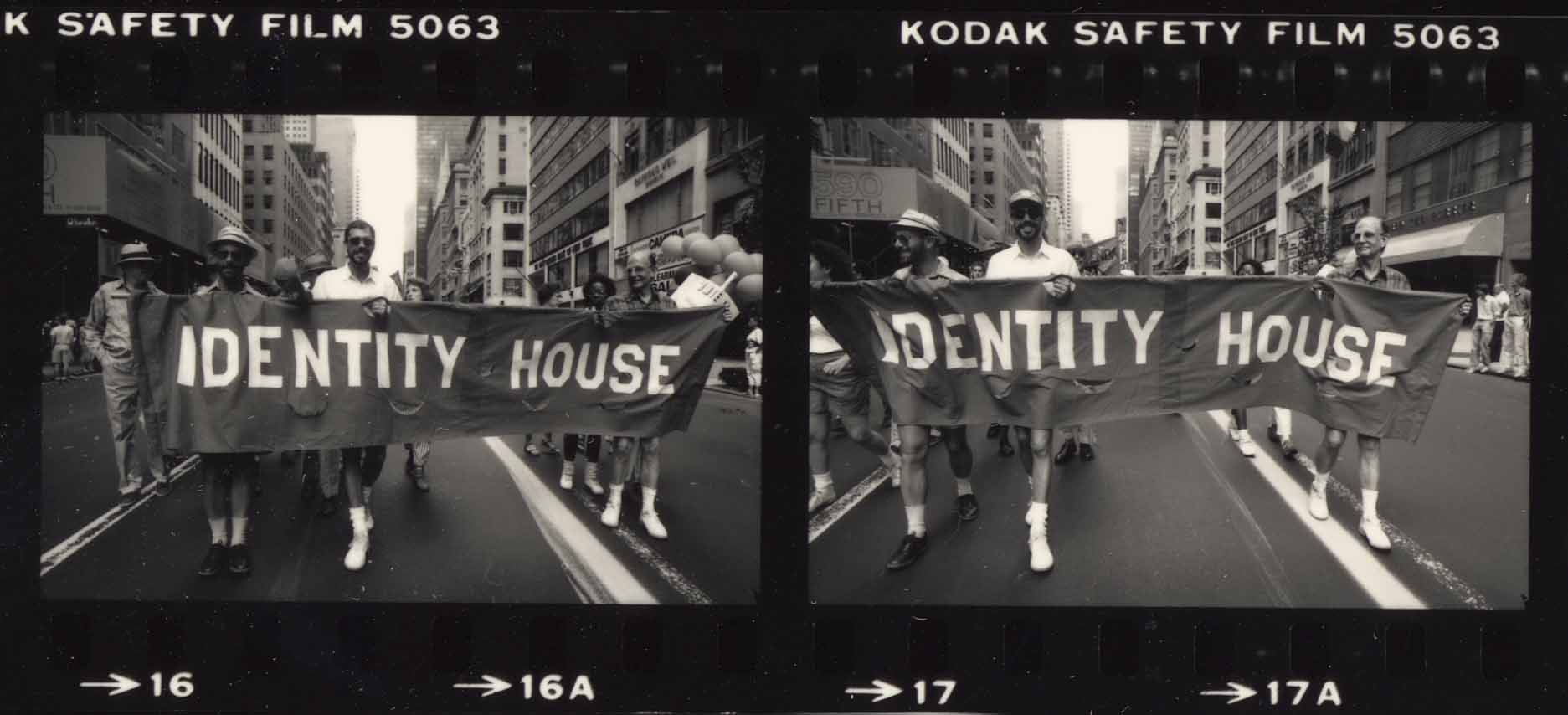
“Identity House”
Event: Gay Pride Parade
New York, New York
1987
Contact Sheet Close-up,
D 1327 - D 1332
Identity House
In 1983, Marder became a peer counselor at Identity House in New York, New York. Identity House is an open door, non-profit organization
offering support for the lesbian, gay, and bisexual community.
Marder invested much of herself into Identity House – counseling,
leading workshops, and organizing events. A sampling of titles of
workshops she led are “Body Image and Personality,” “Lesbians are
Natural Deconstructionists: Books & Life,” “In the Realm of the
Sense: Reading/Writing/Speaking on Desire.” Regina Colangelo,
a therapist at Identity House, described Dorothy as “skillfully attuned to
the internal and interpersonal dynamics of the clients.”
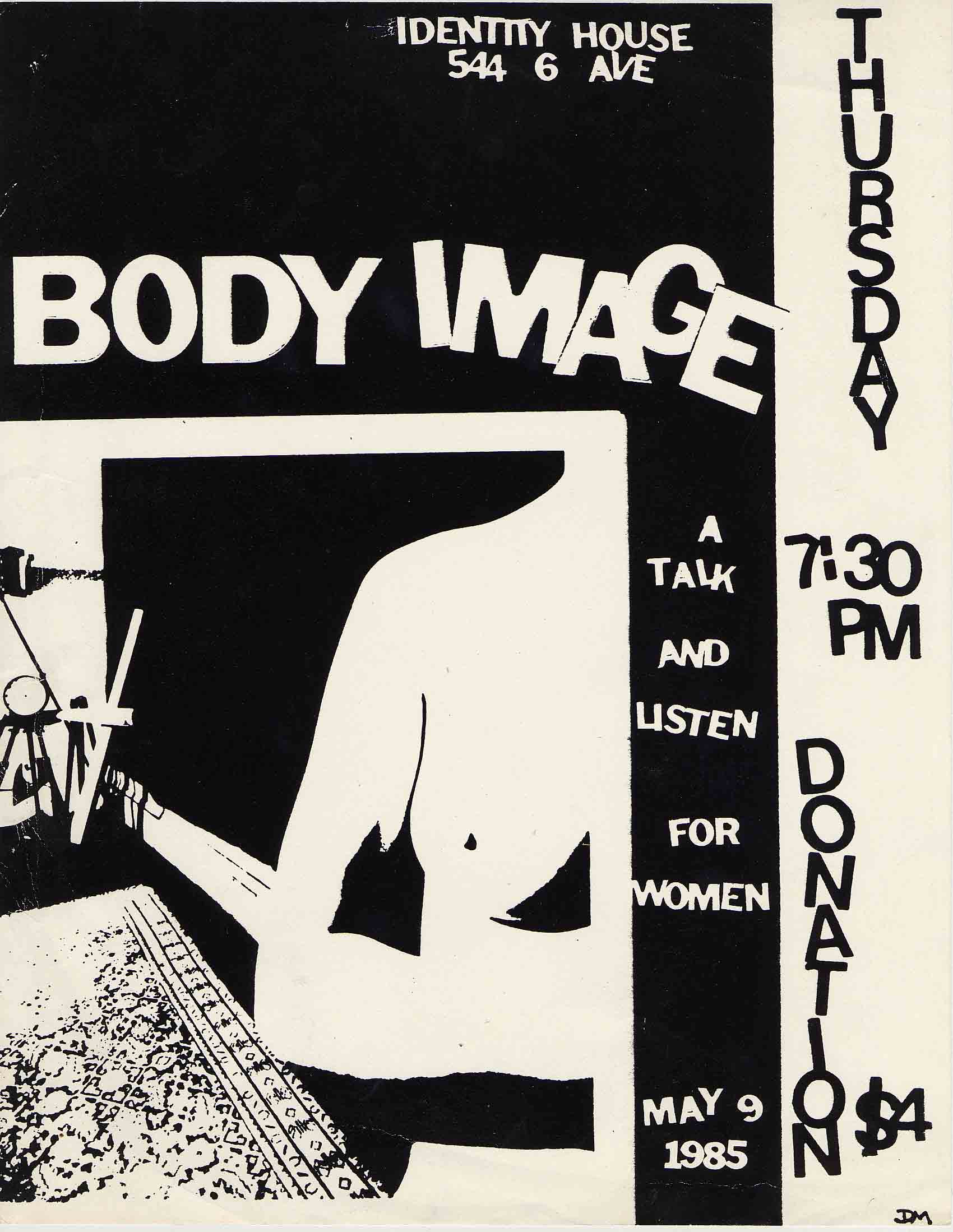
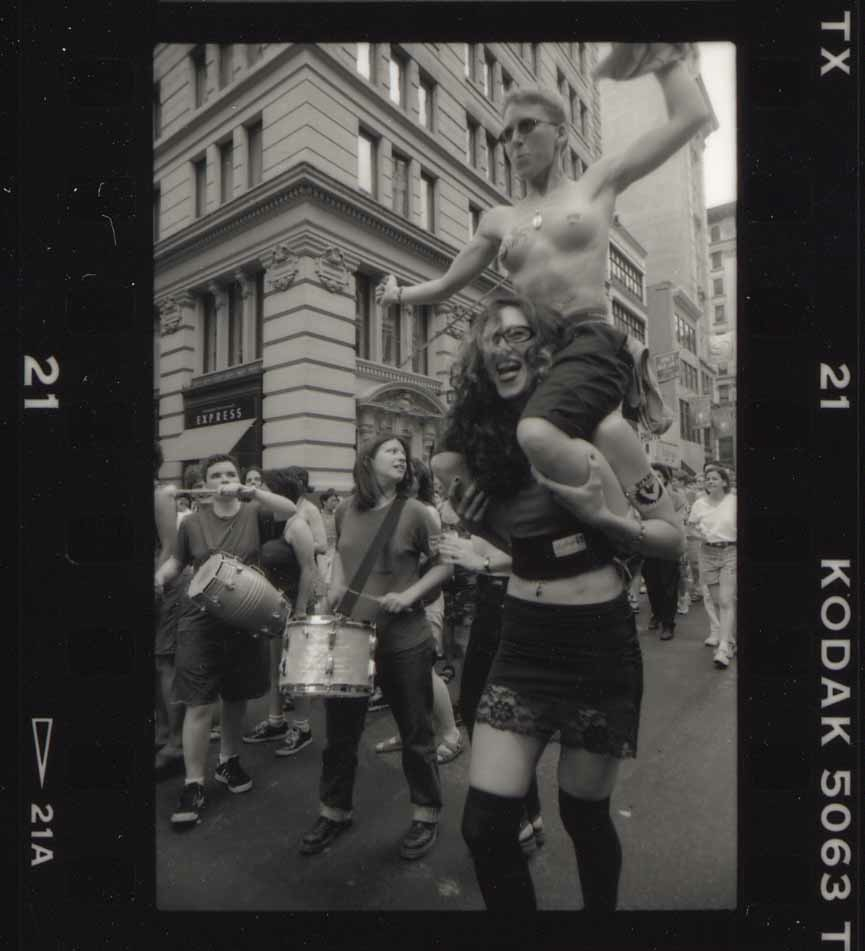
Event: 6th Annual Dyke March
New York, New York
1998
Contact Sheet Close-Up, D 4005 - D 4007
Created 2010-2011 by Elizabeth Matlock and
Wendy Chmielewski
This file was last updated on
February 20, 2015


